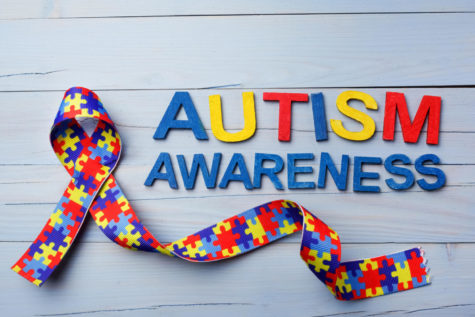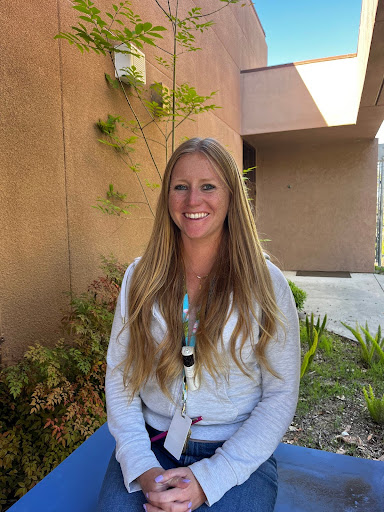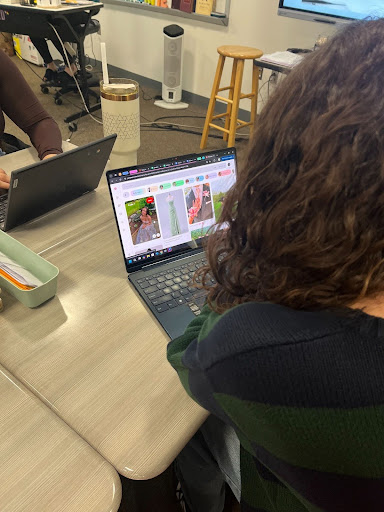Autism Awareness: Knowledge is the Key to Equality
“We hold these truths to be self-evident that all men are created equal”(Declaration of Independence). Those are words our founding fathers hoped future Americans would take into consideration whilst developing political laws and standpoints, but also simply remaining in any person’s conscience. In simpler terms, everyone who is put on this earth deserves to be treate

d equally.
Over the years, we have become more open and welcoming to minorities. However, it is still important to recognize areas where improvement would be beneficial to our society. People with autism are a minority group that are often looked down upon for their differences much like other minorities. It is necessary to acknowledge that people with autism are just as capable as anyone else.
There are many different types of autism diagnoses that depend on the severity and characterizations of the person. Autism usually affects a person’s social skill development and often affects speech. However, having autism does not make someone any less intellectually or academically intelligent as others. In fact, a study was done on people with autism by Rommelse N. Langerak, a psychiatrist who works exclusively with people with autism, found that “23% of the participants had an IQ < 85, while 45% had an average IQ, and 32% had an IQ above average”(Frontiers in Psychiatry). This helps us understand that people with autism have the same intelligence quotient (IQ) as any neurotypical person does.
Lack of awareness on the topic of people with autism is what causes them to be treated in a demeaning manner. For example, several people talk to a peer in a normally pitched voice and then code switch when talking to a peer with autism and begin to speak in a high pitched “baby voice”. This degrades people with autism and increases the feeling of inferiority in them. Even though being overly sweet and welcoming to people with autism can feel like the right approach, it isn’t beneficial because it makes the person feel subordinate.
Frequently, people with autism might not pick up on social cues which leads to a lack of understanding or empathy for others’ emotions. This stems from the finding that people with autism avoid eye contact which makes it difficult to read facial expressions. This usually causes obliviousness to recognizing simple emotions in others. Because people with autism aren’t easily aware of other people feeling irritated or frustrated, they don’t have sympathy for them.
Many people with autism also have outlier skills which are areas where the person is highly intelligent. Outlier skills are commonly found in areas such as art, music, coding, etc.
Katherine Shoener, a preschool special education teacher, elaborates on one of her previous students with mild autism that has an extraordinary outlier skill, “His mom told me that she realized he had a talent when he was three years old. They were in the car and he was looking at the map on her phone and he guided his mother to the destination without using the map.”
The child began to embrace his skill by looking at and memorizing maps of San Diego. Eventually, if somebody were to name a street anywhere in San Diego, he could name the streets around it from South to North.
It is not certain why outlier skills come to be. However, a theory found by the National Library of Medicine is that, “[t]he absence of intuitive and even obligatory “mentalizing” in autism may also contribute to talent,”(World Psychiatry Journal). To put this into perspective, oftentimes when someone is blind, another one of their senses is strengthened due to the absence of sight. This is their body adapting to its circumstances and surroundings. In this case, because people with autism generally lack social skills, they compromise with an outlier skill.
In sum, a diagnosis of autism does not diminish intelligence or capabilities. Thus, those should not treat people with autism with any less respect as any neurotypical person. This applies to any minority group for that matter. Some exclude minorities for their quirks, and some go out of their way to make sure these minorities are cushioned and are overly sympathetic with them, when in reality, inclusivity is equality.
Your donation will support the student journalists of Canyon Hills High School. Your contribution will allow us to purchase equipment and cover our annual website hosting costs.
























